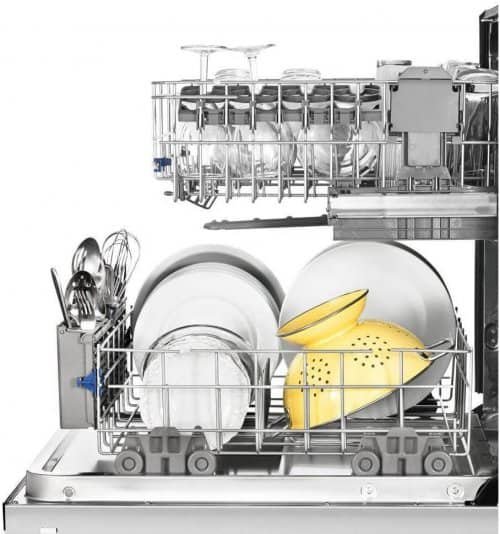The Mystery of Soapy-Tasting Dishes: Understanding the Causes
When you eagerly unload your freshly washed dishes from the dishwasher, only to discover an unpleasant soapy taste, it can be frustrating and confusing. This phenomenon is not uncommon and has left many wondering why their dishes end up with a lingering soap flavor.
In this article, we will delve into the various factors that contribute to this issue and explore practical solutions to ensure that your dishes come out sparkling clean and free from any unwanted residue.
- Detergent Residue: One of the primary reasons for soapy-tasting dishes is the presence of detergent residue. Dishwasher detergents contain surfactants, which help break down grease and food particles during the washing cycle. However, if the dishwasher does not rinse the dishes thoroughly or if the detergent dispenser is malfunctioning, residue can remain on the dishes. This residue can leave a soapy film that alters the taste of your food and beverages.
To address this issue, ensure that you are using the appropriate amount of dishwasher detergent, as using too much can lead to excessive residue. Additionally, check the dishwasher’s rinse aid dispenser and adjust the settings if necessary. Regularly cleaning the dishwasher and ensuring proper water temperature can also improve the rinsing process and reduce detergent residue.
- Water Quality: Water quality plays a crucial role in determining the taste of your dishes. Hard water, which contains high mineral content such as calcium and magnesium, can interfere with the dishwasher’s performance. These minerals can bind with the detergent, reducing its effectiveness and leaving behind a soapy residue on your dishes.
To mitigate the impact of hard water, consider using a water softener or installing a water conditioner. These devices can reduce the mineral content in the water, leading to cleaner dishes. Alternatively, using dishwasher detergents specifically formulated for hard water can help combat the issue.
- Improper Loading and Overcrowding : The way you load your dishwasher can also contribute to soapy-tasting dishes. Improper loading can result in inadequate water circulation, preventing proper rinsing and leaving behind detergent residue.
To optimize dishwashing performance, follow the manufacturer’s guidelines for loading your dishwasher correctly. Ensure that dishes are spaced properly and do not block the spray arms or detergent dispenser. Avoid overcrowding the dishwasher, as it can restrict water flow and hinder effective cleaning.
- Pre-Rinsing Practices: While it may seem counterintuitive, pre-rinsing dishes excessively before loading them into the dishwasher can lead to soapy-tasting results. Modern dishwashers are designed to handle food particles and grease, and excessive pre-rinsing can leave dishes too clean for the detergent to effectively interact with.
To achieve optimal cleaning results, scrape off excess food particles from dishes before loading them into the dishwasher, but avoid pre-rinsing unless necessary. This will allow the dishwasher detergent to work efficiently and prevent the buildup of detergent residue.
Conclusion:
The soapy taste experienced with dishes after running them through the dishwasher can be attributed to various factors such as detergent residue, water quality, improper loading, and pre-rinsing practices. By understanding these causes, you can take proactive steps to eliminate the issue. Follow proper loading techniques, adjust dishwasher settings, maintain water quality, and ensure the correct amount of detergent is used. With these precautions in place, you can enjoy clean, fresh-tasting dishes from your dishwasher every time.

